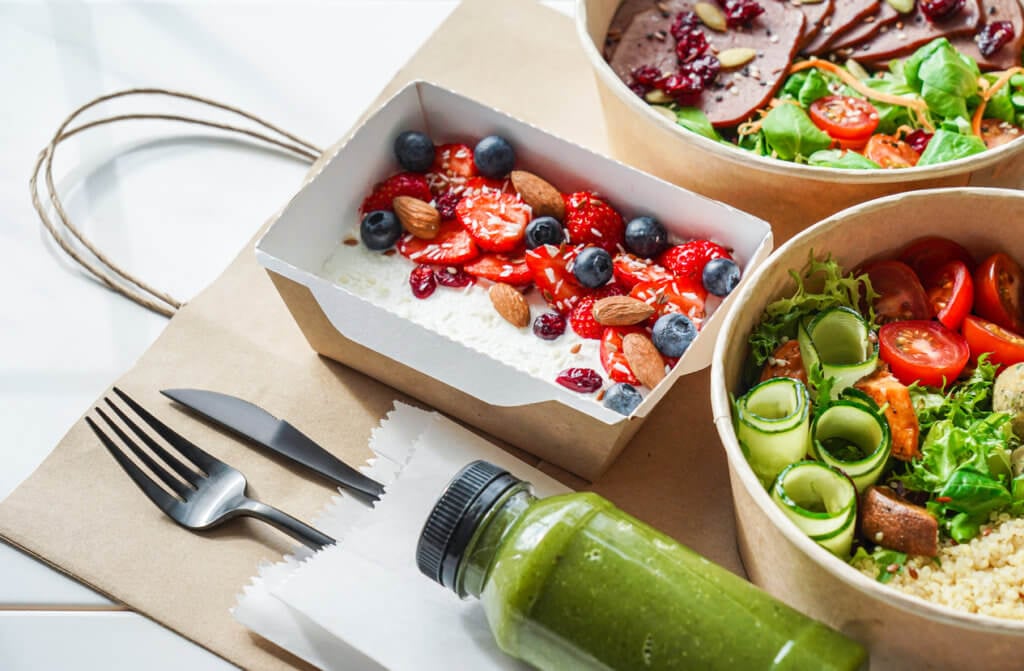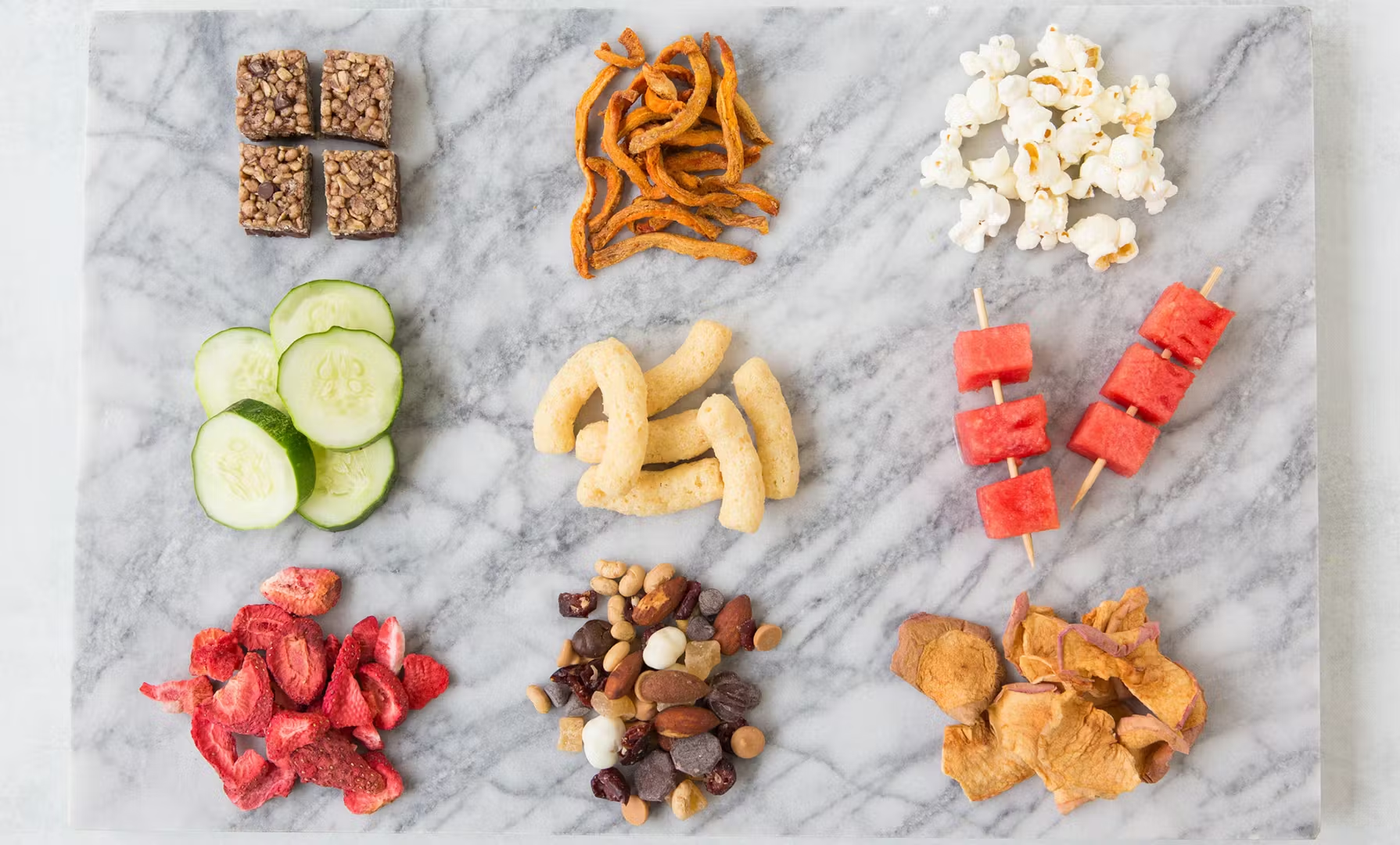Uncategorized
Meal Planning: The Key to a Healthier Lifestyle
Meal planning is a powerful tool that can transform your relationship with food and your overall well-being. By taking the time to strategize and prepare your meals, you can not only improve your health but also save time, reduce stress, and enjoy a more balanced and satisfying lifestyle. In this comprehensive article, we will explore the many benefits of meal planning and provide practical strategies to help you incorporate it into your daily routine.
The Importance of Meal Planning
Meal planning is a proactive approach to food management that can have far-reaching impacts on your life. By taking the time to plan your meals in advance, you can ensure that you have a balanced and nutritious diet, minimize food waste, and save money on grocery expenses. Additionally, meal planning can reduce the daily decision fatigue that often leads to unhealthy food choices.

The Benefits of Meal Planning
- Improved Nutrition: By planning your meals, you can ensure that you are consuming a well-balanced diet that includes a variety of essential nutrients.
- Reduced Stress: Meal planning takes the guesswork out of what to eat, which can significantly reduce the daily stress of figuring out meals.
- Increased Efficiency: With a plan in place, you can streamline your grocery shopping and meal preparation, saving you valuable time.
- Cost Savings: Meal planning allows you to purchase ingredients in bulk, reduce food waste, and avoid impulse purchases at the grocery store.
- Customized Meal Options: Meal planning gives you the flexibility to tailor your meals to your specific dietary needs, preferences, and goals.
Developing a Meal Planning Strategy
Effective meal planning requires a systematic approach that takes into account your lifestyle, dietary needs, and personal preferences. Here are the key steps to creating a successful meal planning strategy:
Step 1: Assess Your Needs and Goals
- Identify your dietary requirements, such as any food allergies, intolerances, or special dietary needs.
- Determine your personal preferences and the types of meals you enjoy.
- Set specific health and nutrition goals, such as weight management, improved energy levels, or better blood sugar control.
Step 2: Plan Your Meals
- Decide on the number of meals you will plan for, such as breakfast, lunch, dinner, and snacks.
- Create a weekly or monthly meal plan, taking into account your schedule and any upcoming events or activities.
- Incorporate a variety of nutrient-dense foods, including fruits, vegetables, whole grains, lean proteins, and healthy fats.
Step 3: Grocery Shopping and Meal Preparation
- Make a comprehensive grocery list based on your meal plan to ensure you have all the necessary ingredients on hand.
- Allocate time for meal preparation, such as pre-cutting vegetables or cooking large batches of proteins.
- Utilize meal-prepping techniques, such as batch cooking or freezing meals, to save time during the week.
Step 4: Adjust and Refine
- Regularly review and adjust your meal plan to accommodate changes in your schedule, preferences, or dietary needs.
- Experiment with new recipes and ingredients to keep your meals interesting and enjoyable.
- Solicit feedback from family members or friends to continuously improve your meal planning process.

Meal Planning for Breakfast
Breakfast is often considered the most important meal of the day, as it provides the energy and nutrients needed to fuel your body throughout the morning. Effective meal planning for breakfast can help you start your day on a positive note and set the tone for the rest of the day.

Importance of a Balanced Breakfast
- Provides essential macronutrients (carbohydrates, proteins, and healthy fats) to maintain energy levels
- Supports cognitive function and mental alertness
- Helps regulate blood sugar levels and appetite throughout the day
Breakfast Meal Planning Strategies
- Incorporate a variety of whole, unprocessed ingredients, such as oats, eggs, Greek yogurt, and fresh fruits
- Prepare breakfast items in advance, such as overnight oats or hard-boiled eggs
- Explore make-ahead breakfast casseroles or breakfast sandwiches for easy, grab-and-go options
- Include protein-rich foods, like eggs, lean meats, or plant-based proteins, to help keep you feeling full and satisfied
Breakfast Meal Planning Examples
- Overnight oats with berries, chia seeds, and almonds
- Egg and vegetable frittata with a side of whole-grain toast
- Spinach and feta breakfast burrito with black beans and avocado
- Greek yogurt parfait with granola and fresh fruit
Meal Planning for Lunch
Lunchtime can be a challenging part of the day, as the demands of work and other responsibilities can make it difficult to maintain a healthy eating routine. Effective meal planning for lunch can help you stay on track and ensure that you have a nutritious and satisfying midday meal.

Importance of a Balanced Lunch
- Provides sustained energy and nutrients to fuel your afternoon
- Helps prevent overeating or making unhealthy choices later in the day
- Supports overall productivity and mental focus
Lunch Meal Planning Strategies
- Prepare grab-and-go lunch options, such as salads, wraps, or Mason jar meals
- Incorporate a balance of lean proteins, complex carbohydrates, and fresh fruits and vegetables
- Utilize leftovers from previous dinners to create quick and easy lunch options
- Explore make-ahead lunch items, like soup or chili, that can be easily reheated
Lunch Meal Planning Examples
- Mediterranean quinoa salad with grilled chicken, cucumber, and feta
- Whole-wheat turkey and avocado wrap with a side of roasted sweet potato
- Lentil and vegetable soup with a small green salad
- Roasted vegetable and hummus pita sandwich
Meal Planning for Dinner
Dinner is often the most substantial meal of the day, making it an important component of your overall meal planning strategy. Effective dinner meal planning can help you create nourishing and satisfying meals that bring the family together and promote a healthy lifestyle.

Importance of a Balanced Dinner
- Provides the opportunity to consume a larger portion of your daily nutrient intake
- Supports restful sleep and recovery by providing a balance of macronutrients
- Encourages quality time spent with family or friends, fostering a sense of community and connection
Dinner Meal Planning Strategies
- Incorporate a variety of protein sources, such as lean meats, fish, legumes, or tofu
- Focus on including a wide range of colorful fruits and vegetables
- Explore one-pot or sheet pan meals to simplify the cooking process
- Utilize meal-prepping techniques, like batch cooking or freezing portions, to save time
Dinner Meal Planning Examples
- Baked salmon with roasted broccoli and quinoa
- Vegetable stir-fry with brown rice and grilled tofu
- Slow-cooker chicken and vegetable soup with whole-grain rolls
- Grilled chicken fajitas with sautéed peppers and onions, served with whole-wheat tortillas
Meal Planning for Snacks
Snacking can be an important part of a balanced diet, as it can help regulate blood sugar levels, curb hunger, and provide energy between meals. Effective meal planning for snacks can ensure that you have nutrient-dense options on hand to support your health and wellness goals.

Importance of Healthy Snacking
- Helps maintain energy levels and prevent overeating at mealtimes
- Provides an opportunity to incorporate additional fruits, vegetables, and other nutrient-rich foods
- Can support weight management by keeping blood sugar stable and preventing excessive hunger
Snack Meal Planning Strategies
- Prepare individual portions of healthy snack options, such as fresh fruit, raw vegetables, or trail mix
- Explore make-ahead snack recipes, like energy bites or homemade granola bars
- Keep a well-stocked pantry and refrigerator with a variety of nutrient-dense snack options
- Incorporate a balance of macronutrients, such as protein, complex carbohydrates, and healthy fats, to create more filling and satisfying snacks
Snack Meal Planning Examples
- Greek yogurt with fresh berries and a sprinkle of granola
- Sliced apple with nut butter and a small handful of almonds
- Celery sticks with hummus and baby carrots
- Roasted chickpeas with a pinch of sea salt and paprika
Meal Planning for Special Occasions and Dietary Restrictions
Meal planning becomes even more critical when navigating special occasions or accommodating dietary restrictions. By incorporating these considerations into your overall meal planning strategy, you can ensure that you and your family can enjoy delicious and nourishing meals, regardless of the circumstances.
Meal Planning for Special Occasions
- Incorporate festive and indulgent dishes while maintaining a balanced approach
- Prepare make-ahead items to simplify the cooking process during busy times
- Explore healthier substitutions for traditional holiday or event-related foods
- Encourage everyone to contribute to the meal planning and preparation process
Meal Planning for Dietary Restrictions
- Identify any food allergies, intolerances, or specific dietary needs within your household
- Research and experiment with recipes that accommodate these restrictions
- Communicate with family members or guests about dietary needs to ensure a welcoming and inclusive dining experience
- Maintain a well-stocked pantry and refrigerator with a variety of versatile, allergen-friendly ingredients
Examples of Meal Planning for Special Occasions and Dietary Restrictions
- Hosting a holiday gathering with a mix of traditional and healthier menu options, such as a roasted turkey with a quinoa and kale side salad
- Preparing a gluten-free and dairy-free birthday cake for a family member with food allergies
- Planning a picnic or barbecue with a variety of vegetarian and meat-based options to accommodate different dietary preferences

Conclusion
Meal planning is a powerful tool that can transform your relationship with food and your overall well-being. By taking the time to strategize and prepare your meals, you can not only improve your health but also save time, reduce stress, and enjoy a more balanced and satisfying lifestyle. Incorporating meal planning into your daily routine can have far-reaching impacts, from ensuring you consume a well-balanced diet to reducing food waste and saving money on grocery expenses.
Whether you’re looking to improve your nutrition, streamline your meal preparation, or simply enjoy a more mindful and intentional approach to eating, meal planning can be the key to a healthier and more fulfilling lifestyle. By following the strategies outlined in this comprehensive article, you can develop a personalized meal planning system that works for you and your family, and enjoy the many benefits that come with a well-planned and nourishing diet.

